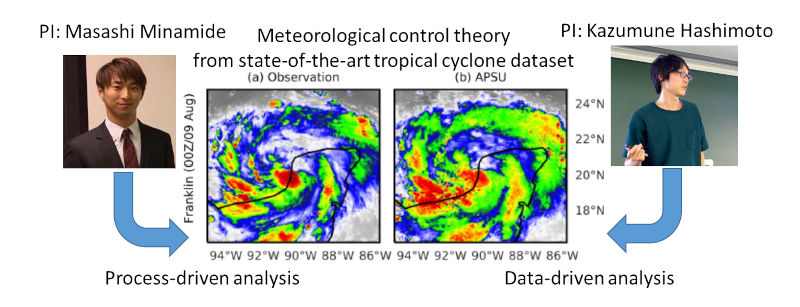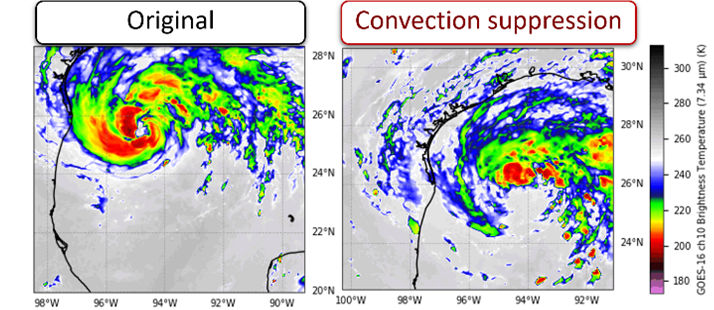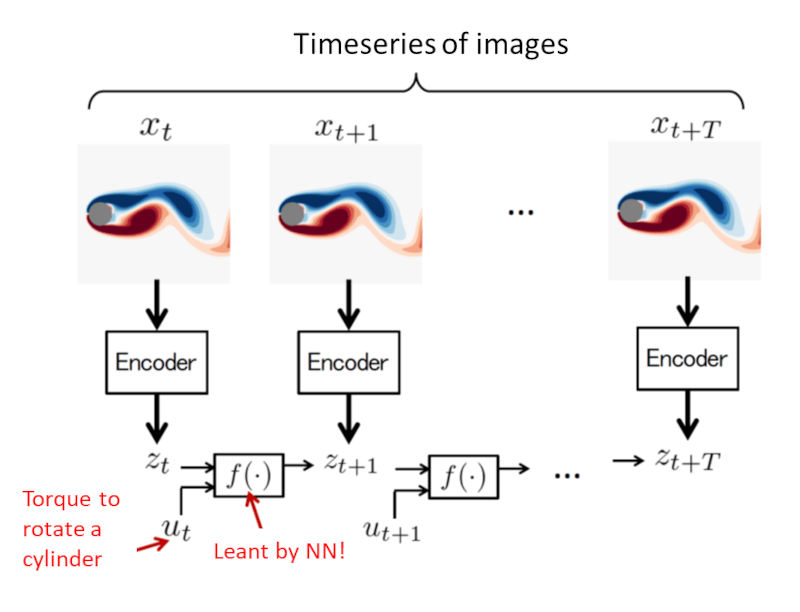Progress Report
Control Theory of Weather-Society Coupling Systems for Supporting Social Decision-Making[A-1] Construction and analysis of new meteorological data leading to “controllability” and design of control methods
Progress until FY2024
1. Outline of the project
Background:
Extreme weather events, including tropical cyclones, are complex phenomena that exhibit vast amounts of energy. In this Goal 8, our aim is to develop a theory that would enable us to safely alter extreme weather using minimal external forces.
Objective:
We aim at establishing a systematic method for influencing the future trajectory of extreme weather events, such as tropical cyclones, through small-scale artificial interventions. This will give rise to a new paradigm in meteorological control theory.
Method:
By an integration of state-of-the-art simulations and satellite weather observations, we will construct a novel dataset of the three-dimensional structures of tropical cyclones. Then, this dataset will be analyzed via a blend of process-driven and data-driven approaches (Fig. 1).

2. Outcome so far
- ①We have successfully completed to build the research infrastructure and developed the necessary dataset to explore the controllability of tropical cyclones.
- ② [Process-driven approach] We found that the meso-scale water vapor anomalies solely drive rapid intensification of a tropical cyclone (Fig.2). We are now exploring how to effectively use this novel physical understanding to suggest specific and feasible interventions for controlling severe weather events.


- ③ [Data-driven approach] We improved Ensemble Kalman Control developed in R&D Item A-2 and developed a mathematical method that can input the best possible external force, even for large-scale weather, using simulation results with their uncertainty.

3. Future plans
We have discovered that small-scale fluctuations in water vapor can influence the overall strength and development of a tropical cyclone, which could be useful for typhoon control. In cooperation with R&D Item A-2, we also found an efficient method to automatically search for good control inputs through simulation. By combining and deepening these results, we will now focus on designing actual devices to intervene the atmosphere to mitigate tropical cyclones.